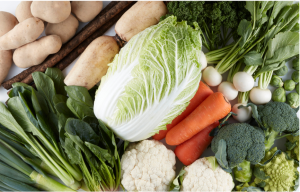 As the days grow longer and the earth awakens from winter’s slumber, the Spring Equinox marks a time of balance, renewal, and fresh beginnings. This natural shift in energy invites us to pause, realign, and embrace transformation in our own lives.
As the days grow longer and the earth awakens from winter’s slumber, the Spring Equinox marks a time of balance, renewal, and fresh beginnings. This natural shift in energy invites us to pause, realign, and embrace transformation in our own lives.
The Equinox is a moment of perfect balance, with day and night in equal harmony. It’s a powerful reminder to reflect on where we may need more equilibrium—whether in our health, mindset, or daily routines. Just as nature begins to bloom, we, too, can shed the heaviness of winter and step into a season of growth and vitality.
 To align with this energy, consider cleansing your space, both physically and energetically. Open the windows, clear out clutter, and invite in fresh air and light. In your wellness routine, focus on nourishing seasonal foods, grounding movement like yoga or walking, and mindful practices such as journaling or meditation.
To align with this energy, consider cleansing your space, both physically and energetically. Open the windows, clear out clutter, and invite in fresh air and light. In your wellness routine, focus on nourishing seasonal foods, grounding movement like yoga or walking, and mindful practices such as journaling or meditation.
 Spring is a season of new opportunities, fresh energy, and expansion. Take this time to set intentions, embrace change, and welcome the possibilities ahead. What seeds of growth will you plant this season?
Spring is a season of new opportunities, fresh energy, and expansion. Take this time to set intentions, embrace change, and welcome the possibilities ahead. What seeds of growth will you plant this season?
Embrace renewal, align with nature, and step into your best self.
If you’re ready to fully embrace this fresh start, join me for my upcoming Spring Detox: Refresh Your Body & Mind for the New Season! This guided experience will help you clear out the old, nourish your body, and step into spring with vibrant energy. Stay tuned for details!
 Join Me for a Free Online Yoga & Meditation Class!
Join Me for a Free Online Yoga & Meditation Class!
To welcome the Spring Equinox, I’m hosting a free online yoga and meditation class on March 9th at 7 PM. This session is designed to help you feel grounded, refreshed, and aligned with the energy of the new season. Grab your mat, find a quiet space, and let’s set intentions for the months ahead together! Email today to reserve your spot!


 Leafy Greens & Cruciferous Veggies
Leafy Greens & Cruciferous Veggies By nourishing your body and mind with the right foods and supplements, you can stay
By nourishing your body and mind with the right foods and supplements, you can stay  In the fast-paced world we live in, self-care has become increasingly important for maintaining our physical, mental, and emotional well-being. Among the various practices that promote self-care, yoga stands out as a holistic approach that nurtures both the body and mind. The science behind yoga reveals its profound effects on our overall health and wellness.
In the fast-paced world we live in, self-care has become increasingly important for maintaining our physical, mental, and emotional well-being. Among the various practices that promote self-care, yoga stands out as a holistic approach that nurtures both the body and mind. The science behind yoga reveals its profound effects on our overall health and wellness. Beyond its physical benefits, yoga has a profound impact on mental and emotional well-being. Through mindful movement and breath awareness, time on the mat helps reduce stress, anxiety, and depression. It encourages present-moment awareness, allowing practitioners to cultivate a sense of inner peace and calm. On a physiological level, yoga can regulate the body’s stress response system, leading to lower levels of cortisol (“the stress hormone”) and greater feelings of relaxation and calm.
Beyond its physical benefits, yoga has a profound impact on mental and emotional well-being. Through mindful movement and breath awareness, time on the mat helps reduce stress, anxiety, and depression. It encourages present-moment awareness, allowing practitioners to cultivate a sense of inner peace and calm. On a physiological level, yoga can regulate the body’s stress response system, leading to lower levels of cortisol (“the stress hormone”) and greater feelings of relaxation and calm. Yoga has also been found to enhance cognitive function and mental clarity. Regular yoga practice has been associated with improvements in memory, concentration, and attention span. The meditative aspect of yoga promotes mindfulness, which can help individuals manage negative thought patterns and develop a more positive outlook on life.
Yoga has also been found to enhance cognitive function and mental clarity. Regular yoga practice has been associated with improvements in memory, concentration, and attention span. The meditative aspect of yoga promotes mindfulness, which can help individuals manage negative thought patterns and develop a more positive outlook on life. In essence, the science behind yoga underscores the plethora of benefits for overall health and well-being. By incorporating yoga into our self-care routines, we can cultivate a greater sense of balance, resilience, and vitality in our lives. As we tune into the wisdom of our bodies and minds through yoga, we empower ourselves to lead healthier, happier, and more fulfilling lives.
In essence, the science behind yoga underscores the plethora of benefits for overall health and well-being. By incorporating yoga into our self-care routines, we can cultivate a greater sense of balance, resilience, and vitality in our lives. As we tune into the wisdom of our bodies and minds through yoga, we empower ourselves to lead healthier, happier, and more fulfilling lives. March marks the annual celebration of Nutrition Month, a time dedicated to raising awareness about the importance of healthy eating and making informed food choices. In the pursuit of well-being, the intertwining of nourishing our bodies and nurturing our overall health holistically is paramount. By recognizing the significance of both aspects, we can support overall health and well-being, while also recognizing the interconnectedness of mind and body.
March marks the annual celebration of Nutrition Month, a time dedicated to raising awareness about the importance of healthy eating and making informed food choices. In the pursuit of well-being, the intertwining of nourishing our bodies and nurturing our overall health holistically is paramount. By recognizing the significance of both aspects, we can support overall health and well-being, while also recognizing the interconnectedness of mind and body. Nutrition is a dynamic field where discoveries are constantly being made, challenging old diet theories many have lived by. This ever-evolving landscape can be overwhelming, but having a health coach can help you sort through the clutter and find the best approach for you.
Nutrition is a dynamic field where discoveries are constantly being made, challenging old diet theories many have lived by. This ever-evolving landscape can be overwhelming, but having a health coach can help you sort through the clutter and find the best approach for you.  During nutrition month, let’s not only focus on nourishing our bodies but also nurturing our health holistically. Whether it’s engaging in mindful eating practices, practicing gratitude, or incorporating stress-relieving activities into our daily routines, let’s prioritize the
During nutrition month, let’s not only focus on nourishing our bodies but also nurturing our health holistically. Whether it’s engaging in mindful eating practices, practicing gratitude, or incorporating stress-relieving activities into our daily routines, let’s prioritize the  ‘Tis that time of year once again—the season of silver bells, hustle and bustle, holiday lights aglow, marked by friends and family gathering, and of course, an elaborate production of delectable treats! The holidays offer a chance to enjoy the company of loved ones, take part in traditions, practice gratitude, and indulge in festive foods together. However, navigating this period can be a challenge for many, with some either restricting or overindulging in their favorite culinary delights. Embracing mindfulness can be the key to fostering a healthier relationship with food and enhancing our overall eating experience. Below are some suggestions that you may find helpful in terms of discovering how you can relish the foods you adore (guilt-free!) throughout the holiday season!
‘Tis that time of year once again—the season of silver bells, hustle and bustle, holiday lights aglow, marked by friends and family gathering, and of course, an elaborate production of delectable treats! The holidays offer a chance to enjoy the company of loved ones, take part in traditions, practice gratitude, and indulge in festive foods together. However, navigating this period can be a challenge for many, with some either restricting or overindulging in their favorite culinary delights. Embracing mindfulness can be the key to fostering a healthier relationship with food and enhancing our overall eating experience. Below are some suggestions that you may find helpful in terms of discovering how you can relish the foods you adore (guilt-free!) throughout the holiday season! Engage all your senses: Whether you’re savouring a main course, indulging in dessert, sipping coffee, or mingling at a wine and cheese party, immerse yourself in the experience using your senses. Pay attention to the texture, temperature, scent and flavours of the food. Notice how the food is looks and is presented.
Engage all your senses: Whether you’re savouring a main course, indulging in dessert, sipping coffee, or mingling at a wine and cheese party, immerse yourself in the experience using your senses. Pay attention to the texture, temperature, scent and flavours of the food. Notice how the food is looks and is presented.
 More Insights into Mindfulness: While mindfulness is beneficial throughout the year, its practice can be particularly valuable during the holidays. Continue honing these skills into the new year, remembering that food is a connects us to others, has value in traditions, and is a source of celebration, rather than shame or guilt. This holiday season, create space for your favourites with gratitude and see what that space gives back to you.
More Insights into Mindfulness: While mindfulness is beneficial throughout the year, its practice can be particularly valuable during the holidays. Continue honing these skills into the new year, remembering that food is a connects us to others, has value in traditions, and is a source of celebration, rather than shame or guilt. This holiday season, create space for your favourites with gratitude and see what that space gives back to you.